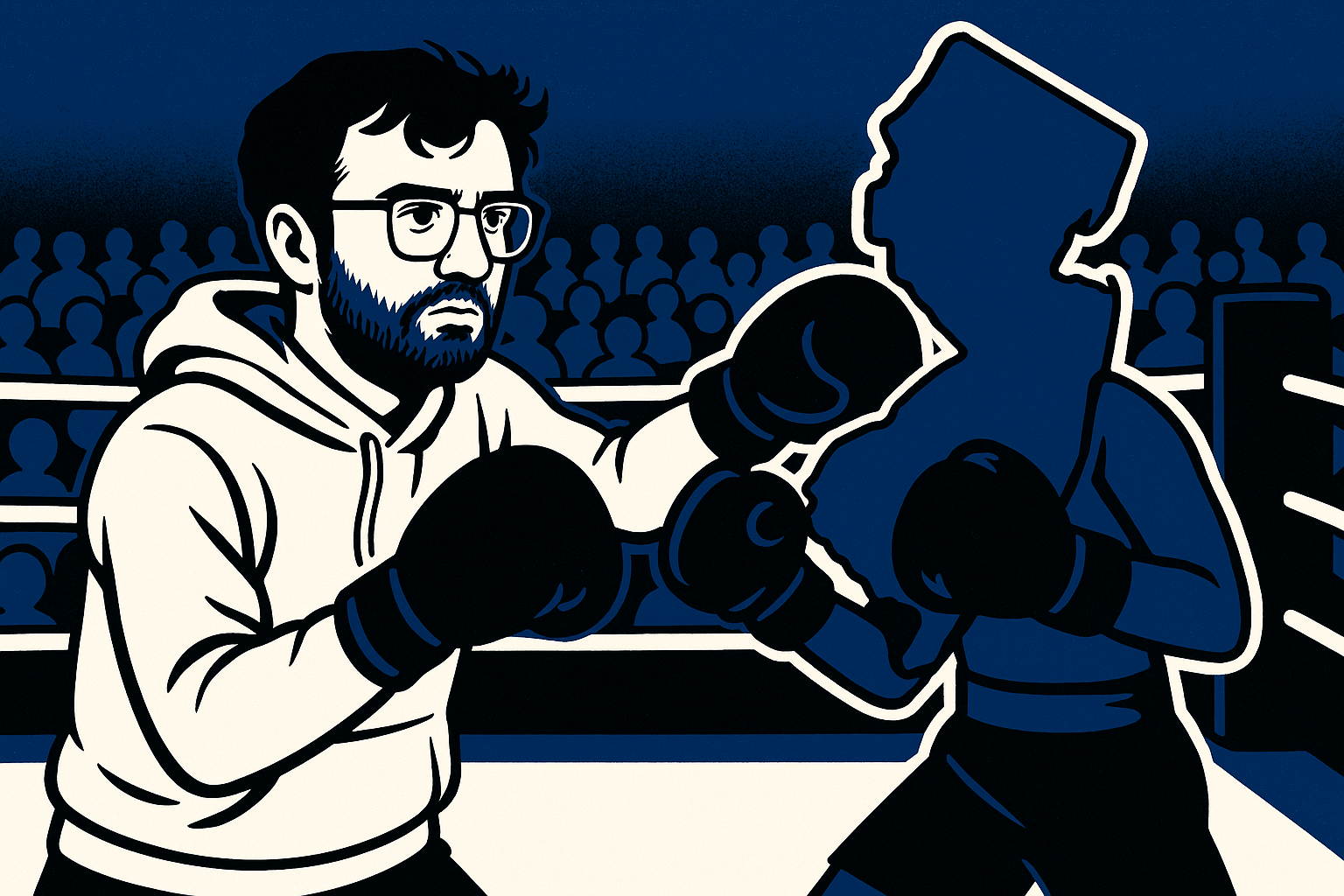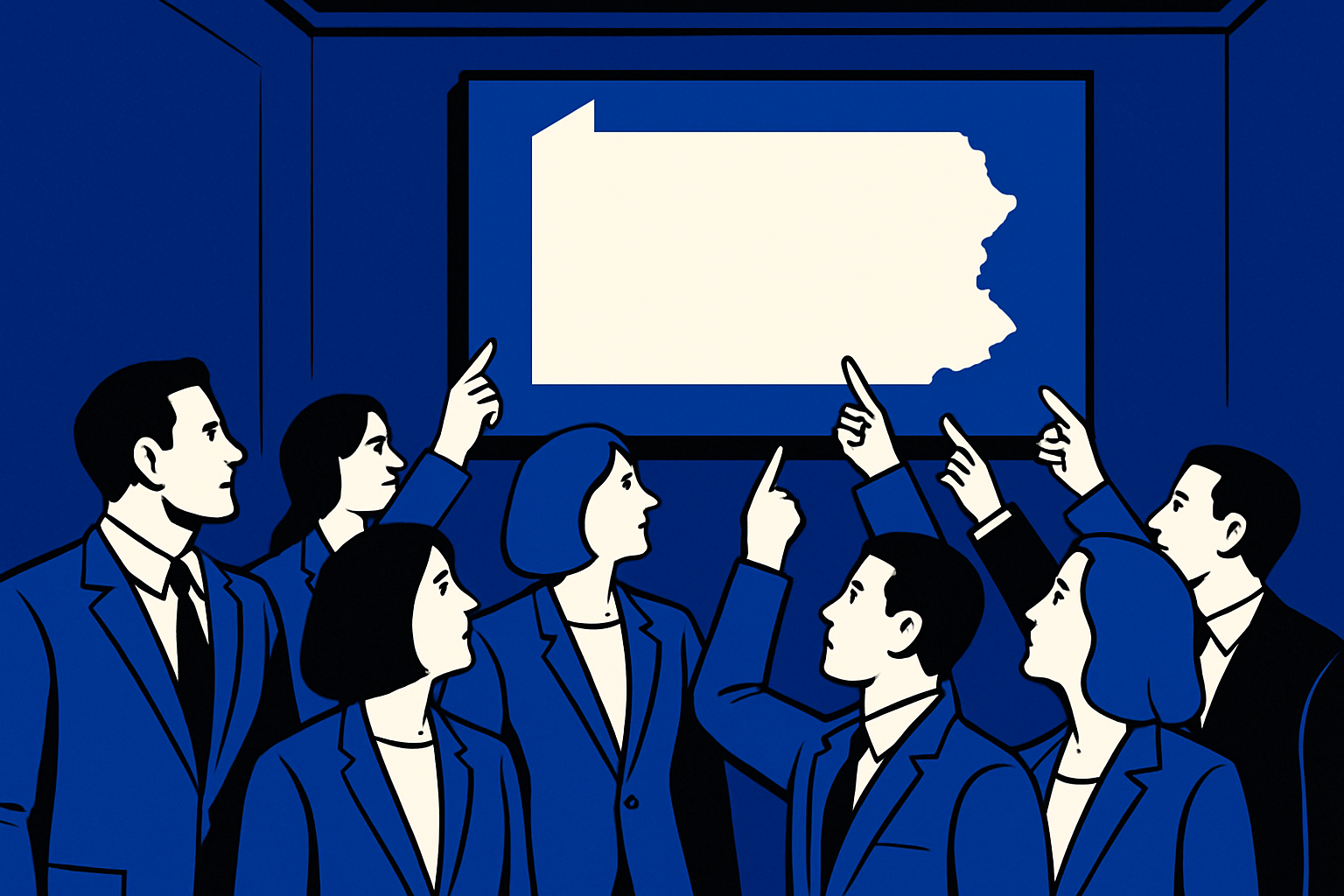Maybe it’s the Great Pushback.
Maybe it’s a moment for reflection after coming so far so fast.
Whatever it is feels like a moment for all involved in the legal gambling industry in the United States.
Mainly because critical media attention and corresponding threatened political pushback has come in volleys recently, nearly seven years since the nullification of the Professional and Amateur Sports Protection Act.
The United States Supreme Court striking down PASPA immediately made the legalization of sports betting a state’s issue. And with 40 U.S. jurisdictions having done so — with sports betting now a mainstream part of fandom — the push to legalize other forms of gambling like online casino and lottery games have followed. So has the rise of other gambling mutations existing between regulations.
Missteps have been made along the way. Lessons from long-established global gambling markets were seemingly ignored by uninitiated state legislators and gambling companies as the clamber for new customers and tax revenues created a momentum that sounded like a roar. A symbiotic partnership often became adversarial. This therefore seemed, industry observers told Comped, almost bound to happen.
The question is the reponse.
“This is a natural evolution, and America, which is recognized across the globe as a great market, is still maturing. We’re still going through the maturation process,” Princeton Public Affairs Group lobbyist Bill Pascrell III told Comped.
“A lot of this stuff that’s going on now, prop bet bans, tax increases, banning affiliates, all these issues, as well as sweepstakes crackdowns, and skill game crackdowns, could have been slowed down, and potentially avoided. Now, the ugliest is coming. And when ugly comes, you have to pay the price, because you didn’t do your proactive relationship-building.”
The bad, the badder, and the ugly
Recent developments and headlines have portrayed a pivotal moment for the legal gambling industry in the U.S.:
- A Fairleigh Dickinson poll found that 76% of New Jersey voters/respondents want restrictions on gambling advertisements. The idea was supported across political and demographic groups.
- Bills were introduced in Maryland and Vermont to repeal online sports betting legislation.
- U.S. Congressman Paul Tonko and Senator Richard Blumenthal introduced the SAFE Bet Act, which would ban gambling advertising on television during certain time periods and impose new federal regulations on gambling companies.
- New Jersey Gov. Phil Murphy proposed raising taxes on sports betting and iCasino as part of his 2025 budget recommendations. Ohio is attempting to double its rate and a similar bill in Louisiana failed.
- The Nevada Gaming Control Board ordered prediction market Kalshi, which is regulated by the Commodity Futures Trading Commission, to stop offering sports- and election-based contracts. American Gaming Association CEO Bill Miller has described prediction markets’ expansion into sports markets as a “backdoor for national sports betting.”
- YouTube tightened its regulations for gambling content.
- Sweeps casinos High 5 Casino and Stake.us ceased operations in states with legal online casinos.
- Texas banned lottery couriers, including Jackpocket, which had sought regulatory approval. Connecticut, New Mexico, and South Carolina are considering similar moves.
- Numerous states are mulling codifying the legality of sweepstakes casinos, including New York and Florida.
- With the Jontay Porter and Ippei Mizuhara gambling scandals fading from public attention, the Fresno State men’s basketball team has become the subject of a gambling investigation.
- A litany of mainstream media has questioned whether the legalization of sports betting was bad for sports and society.
Fluharty: Legal gambling isn’t going anywhere
But the proverbial toothpaste is not going back into the tube, West Virginia State Delegate and National Council of Legislators from Gaming States president Shawn Fluharty told Comped.
“Gambling legislation is more popular than it ever has been as well,” he said of the pushback. “While we may see bills introduced, I’ve yet to see a single state seriously consider rescinding any gambling laws they have on the books that are generating record revenues for states currently.”
Especially, he said, with the AGA announcing recently that a record $13.7 billion in revenue was generated for states by the legal gambling market in 2024.
“Quite frankly,” Fluharty continued, “that’s only going to grow and more states are going to expand.
“So am I shocked to see that there are opponents to gambling legislation and they serve in legislatures and they can introduce legislation? No. I’ve been doing this for quite a while and you’re always going to have people on the other side who don’t necessarily support it.”
But even with politics remaining local and elected officials reflective of the constituents’ moods, Fluharty sees less peril in supporting gambling bills nationally.
“I believe we have reached what I call political zero when it comes to gambling expansion,” he observed. “I do not believe you’re losing votes any longer if you are supporting gambling expansion.
“And what does that mean going forward? If we have reached political zero, you’re going to start seeing expansion in many states that you never thought were even possible before. And you just saw it this week. Georgia’s running sports expansion. They probably weren’t on anybody’s top list five years ago. Louisiana is taking iGaming very seriously. Arkansas is considering iGaming expansion and gambling expansion as a whole. So I’m telling you the facts are there — the data backs it up that it’s no longer a political risk to be supportive of gambling expansion.”
Relationships forgotten in post-PASPA boom
Pascrell III said the American gambling industry, while “extraordinarily successful” for its lineage, has reached a “pinch point because of the industry’s lack of speaking upfront proactively with a clear and concise message.”
“My big message to my clients and the industry is we have a great story to tell,” he explained. “The problem is we’re being viewed by politicians as easy prey and the bad guys. Who are the good guys? The bad guys are the black market.
“It’s not simple. It’s nuanced. But this is all a result — the tax increases, the industry going after sweepstakes and DFS Plus 2 — they’re cranky because those folks don’t pay any licensing fees, pay no or minimum taxes. I think the industry is concerned because they’re dealing with compliance issues, (anti-money laundering) issues, geolocation issues, licensing issues, and taxing issues.”
Fixing the disconnect will be crucial for states hoping to join seven currently offering legal iGaming, Fluharty said.
“I would say the industry needs to get in tune with each other on the iGaming side,” he said, “because essentially the biggest impediment right now is the industry itself, because it’s hard to get any bill passed, I don’t care what the hell it is. You’ve got to get on the same page.”
Lack of engagement has also made business more difficult for the sweepstakes casino industry attempting to bloom in the U.S. despite heightening resistance from state attorneys general.
“They want to hide under the covers. They think that’s the answer,” Pascrell III said of sweepstakes operators. “Just keep making money and before you know it they’re going to be dealing with an avalanche as opposed to going in saying, ‘Hey, look, we’re OK to be regulated. Let’s have a conversation about the best way to do that.’ It’s coming. It’s definitely coming.
“You sit back and let it come and then you react and now you’re behind the eight ball.”
Such was the case in Texas for online lottery couriers and gambling expansion advocates after recent controversies prompted the banishment of DraftKings-owned Jackpocket and its competitors.
Said Texas State Senator Carol Alvarado in a Senate Finance Committee hearing: “Boy, y’all are sure muddying the waters for some of us who try to expand gaming in this state.”
Industry was slow to nuance, ramifications
Fluharty said many complaints he and other lawmakers have fielded after sports betting expansion are “attributable to the over-abundance of advertising.” The FDU poll bolsters that proposition.
Still, Pascrell III deemed the SAFE Bet Act a “terrible idea” because he believes online advertising helps identify legal sportsbooks to uninitiated potential bettors.
“If your statement is essentially, ‘Do you think the industry kind of overstepped or got ahead of itself a little bit?’ I would agree with that,” Fluharty said.
Former Prime Sports executive chair Joe Brennan Jr. left his post recently to attend to some of the wreckage of a frenetic post-PASPA launch.
“The industry was so intent on rapid growth that it got a little crazy,” Brennan told Covers. “I don’t think we’re the next opioid epidemic like some folks waving the bloody shirt on the other side of the ball are trying to say. It’s nowhere close to that, but we have to take it seriously and I think it involves doing something a little bit more than just having 1-800-GAMBLER on your website.”
Politicians are more sophisticated regarding the gambling industry since PASPA fell, Fluharty said, but their collective understanding of iCasino needs improvement. He recalls stunning a delegation in Maryland by showing it how quickly he could launch an offshore site on his phone to play casino games.
“I think the biggest hurdle now, when it comes to, for instance, iGaming expansion, I’m working diligently to shrink that education gap both for lawmakers and the public,” he said. “Lawmakers generally are not in tune as to the complexity of iGaming. And that makes it hard to pass legislation. The education gap remains. It is strong, but it is better now than it was five years ago, thanks to PASPA and sports betting taking off.”
But a misconception remains, Pascrell III said, that the legal sports betting industry as a whole is raking in cash even as DraftKings and FanDuel have distanced themselves from the field. It’s therefore crucial, he added, for the industry to educate legislators before more seek tax rates like New York’s 51% national-high.
“It’s far better to be proactive as opposed to reactive,” Pascrell III said. “Now when we sit down with legislators, they’re kind of like, ‘Oh, yeah, the sports betting industry is making oodles of money.’
“Well, they’re not. The margins are thin. Yes, it’s true that iGaming is far more profitable. But why are you going to kill the goose that laid the golden egg by raising taxes?”
Ultimately, Pascrell III said, “you can’t expect politicians to know everything about everything,” making interpersonal proactive engagement crucial.
“This is more than just policy. It’s relationships.”
And that figures to be crucial in this era of pushback.





